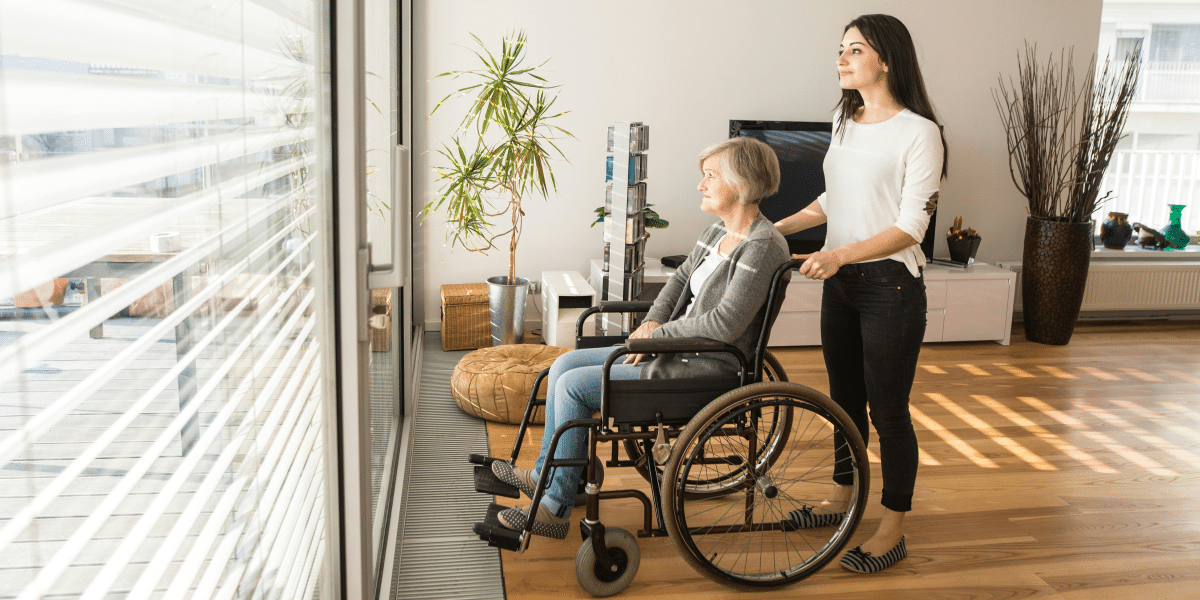In a world where priorities often revolve around career advancements, social engagements, and personal aspirations, the significance of caring for the elderly can sometimes fade into the background. However, beyond duty lies a profound understanding of the importance of caring for older people. Seeking professional in home care services for elderly individuals ensures they receive personalized attention and assistance tailored to their needs. This allows seniors to maintain their independence for as long as possible, enhancing their quality of life in familiar surroundings. This article explores the multifaceted aspects of elderly care, shedding light on why it transcends mere obligation and holds a crucial place in society.
The Aging Population: A Growing Concern
As societies around the globe witness a demographic shift towards an aging population, the need for comprehensive elderly care has become increasingly apparent. Subsequently, the burden of addressing the healthcare, emotional, and social needs of the elderly falls upon communities, families, and caregivers alike. This demographic change also challenges existing healthcare systems to adapt and meet the increasing demand for age-specific services, highlighting the urgency of reforming elderly care policies and practices.
Preserving Dignity and Respect
One of the fundamental pillars of elderly care is preserving their dignity and respect. Aging is a natural process that can bring about physical and cognitive decline, making individuals more vulnerable and dependent on others for assistance. By treating the elderly with empathy, patience, and compassion, caregivers uphold their dignity, reinforcing their sense of self-worth and value within society. Such an approach encourages society at large to view aging as a dignified, respected phase of life rather than a burden.
Promoting Mental and Emotional Well-being
Loneliness and social isolation are pervasive issues among the elderly, often leading to adverse effects on their mental and emotional well-being. Beyond fulfilling basic needs, providing companionship, engaging in meaningful conversations, and involving them in social activities can significantly enhance their quality of life. Additionally, fostering a sense of belonging and purpose helps combat feelings of loneliness, fostering a positive outlook on life. Tailored mental health support, therefore, becomes an essential component of elderly care, ensuring that their emotional and psychological needs are adequately met.
Ensuring Physical Health and Comfort
Physical health is paramount in elderly care, as age-related ailments and chronic conditions can significantly impact their daily lives. From administering medication to facilitating mobility and ensuring proper nutrition, caregivers play a crucial role in maintaining the overall health and comfort of the elderly. Regular medical check-ups, physical therapy, and assistive devices further contribute to their well-being, enabling them to lead fulfilling lives despite physical limitations. Such comprehensive care improves their physical health and enhances their autonomy and ability to enjoy daily activities.
Safety and Security
Creating a safe and secure environment is important for the elderly, especially those with mobility or cognitive impairments. Implementing safety measures such as installing grab bars, removing tripping hazards, and utilizing medical alert systems can prevent accidents and provide peace of mind for both caregivers and seniors. Additionally, staying vigilant for signs of elder abuse or neglect is paramount, ensuring their protection and well-being at all times. These preventative strategies are crucial in promoting a secure living environment that supports the elderly’s independence and well-being.
Embracing Wisdom and Experience
Beyond the tangible aspects of care, valuing the wisdom and experience of the elderly enriches the collective understanding of life and its complexities. Their stories, insights, and perspectives are invaluable lessons that guide and inspire future generations. By fostering intergenerational connections and promoting a culture of respect for the elderly, society honors their contributions and acknowledges their enduring legacy. This cultural appreciation for the elderly’s experiences fosters a deeper, more meaningful connection between generations, enriching the social fabric.
Seeking Specialized Care
In some cases, specialized in home care services for elderly may be necessary. These could include services such as memory care for individuals living with dementia or Alzheimer’s, palliative care for those with terminal illnesses, or rehabilitation programs for seniors recovering from surgery or injury. Accessing specialized care ensures that seniors receive the targeted support and treatment essential for their well-being. It also highlights the importance of a tailored approach to elderly care, recognizing the diverse needs of this population group.
Summing it Up
In conclusion, the importance of utmost care for the elderly transcends mere duty, encompassing a profound understanding of their intrinsic value and significance within society. By preserving their dignity, promoting their well-being, and embracing their wisdom, caregivers, and communities uphold the fundamental principles of compassion, empathy, and respect. As you navigate the complexities of an aging population, reaffirm your commitment to providing unwavering support and care for the elderly, ensuring that they continue to thrive and flourish in their golden years. This holistic approach to elderly care benefits the seniors themselves and enriches our communities and societies as a whole.
Published by: Holy Minoza


















